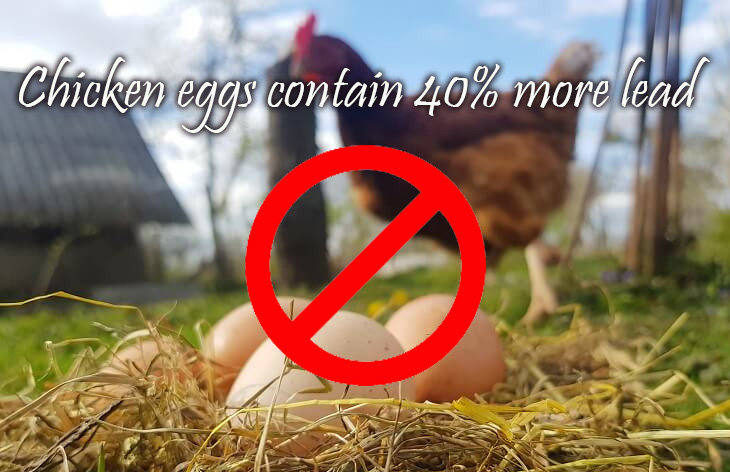Nothing is fresher than the vegetables grown on your farm and the eggs of your chickens. About 400K people of Australia keep chickens in their homes. But just having the eggs fresh is not enough.
A recent research has shown that home-reared chicken eggs, on average, contain 40 times more lead than commercially produced eggs. In this research, the level of lead was found to be high in the blood of about one in two chickens. Similarly, half of their eggs were tested for lead, which is not good for consumers’ health.
If the level of lead is low, it is considered harmful to human health. This can lead to heart disease, low IQ and kidney diseases. The World Health Organization (WHO) says that there is no safe level of lead exposure.
Lead reaches chickens through soil
Depending on the level of lead in the soil of the garden or backyard of the house, the level of lead can be in the eggs of chickens growing at home. Research shows that due to the presence of lead in the soil, most of the lead goes to the chickens, as they scratch in the dirt and eat food from the ground.
Soil test of 25,000 homes in Australia
In the research, the soil of the garden of 55 houses in Sydney was tested. At the same time, lead infection was detected in the chickens and their eggs. Other sources of infection were also found, such as drinking water from animals and food for chickens. This was followed by a study of samples from more than 25,000 home gardens in Australia through the VegeSafe program, with lead being the most concern.
No standards set for lead in animals
There are no guidelines for lead levels in the blood for chickens or other birds. Veterinary assessments and research show that levels of 20 micrograms per deciliter (μg/dL) or more can harm their health. Testing of 69 home-bred chickens found that 45% had blood lead levels above 20 µg/dL.
Then the eggs of these chickens were examined. There are no standards for metal levels in eggs in Australia or anywhere in the world. However, in the 19th Australian Total Diet Study, a small sample of store-bought eggs had lead levels of less than 5μg/kg.
In this research, the average level of lead in the eggs of home-bred chickens was 301 micrograms per kg. Whereas in 9 eggs taken from the market it was 7.2 micrograms / kg.

![Buddha Purnima 2025 [TKB INDIA]](https://topknowledgebox.com/iphaphoo/2025/05/12052025-150x150.jpg)
![YouTube is about to turn 20, the company announced many big features [TKB Tech]](https://topknowledgebox.com/iphaphoo/2025/04/28042025-150x150.jpg)
![Basant Panchami 2025: Know the correct date and auspicious time [TKB INDIA]](https://topknowledgebox.com/iphaphoo/2025/01/31012025-150x150.jpg)

![Amazing feature of WhatsApp, you will be able to reply without listening to the voice message[TKB Tech]](https://topknowledgebox.com/iphaphoo/2024/11/24112024-150x150.jpg)





More Stories
Essential Oil For Skin[TKB Health]
Chia seeds will give double benefits [TKB Health]
Sunglasses Choosing Tips: Keep note before buying sunglasses, otherwise your eyes may get damaged! [TKB Health]